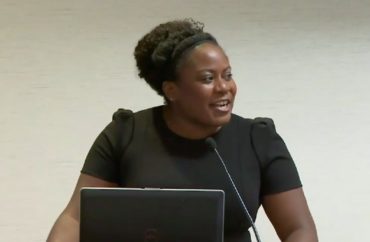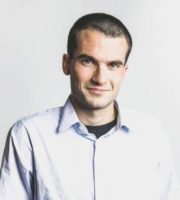
Sociologist and CRT proponent treated as medical expert by media
The New England Journal of Medicine gave a veneer of credibility to an opinion essay about how “abortion access” is a “racial justice issue.”
This allowed media outlets to treat Professor Rachel Hardeman as an expert on abortion laws, with her opinion of course being in favor.
Professor Hardeman is not a medical doctor, and she is not conducting science. Her doctorate is in sociology, but she has a master’s degree in public health. She is also a board member of a regional Planned Parenthood, which stands to lose if abortion is banned.
Hardeman’s essay is a political argument, given the semblance of being a medical judgment because of its inclusion in the NEJM.
“University of Minnesota public health professors and researchers say abortion access is a racial justice issue,” Minnesota’s Star Tribune reported.
“A new journal article from University of Minnesota researchers argues doctors have an obligation to expand and protect abortion access,” Minnesota Public Radio reported as part of an interview with Hardeman (pictured). The same day, National Public Radio and Nebraska Public Media quoted Hardeman as an expert on the issue of race and abortion.
“I leverage the frameworks of critical race theory and reproductive justice to inform her equity-centered work which aims to build the empirical evidence of racism’s impact on health particularly for Black birthing people and their babies,” she states in her university bio.
She also runs the Center for Antiracism Research for Health Equity at the Big Ten university, funded with money from insurance giant Blue Cross Blue Shield of Minnesota.
Hardeman regularly writes papers about how racial minorities are allegedly discriminated against in pregnancy care, but her own research shows that it’s likely more of a class issue than one of race. The paper found that racial minority immigrants had healthier pregnancies than both native white and black Minnesotans, pointing out a possibility that the immigrants were wealthier and had better access to medical care which helped improve their pregnancy outcomes.
MORE: UCSD med school trains doctors to use CRT
In one paper, she claimed that “policing” is linked to preterm births, but her research never identified an actual woman who had come into contact with the police and later gave birth prematurely. Taxpayers gave Hardeman $800,000 for this study on “racialized police violence” and “adverse reproductive health outcomes.”
Still, Hardeman forged ahead with the assertion that “racist policing practices hurt birthing people and their babies.”
Another paper on racism in labor markets and low-birth weight yielded similar results.
But it doesn’t matter how faulty the data is or how politically charged her statements are – Hardeman gives the pro-abortion media the talking points they need to push their radical agenda.
“As restrictions on abortion increase, racial injustice in health will persist and worsen,” she wrote in the New England Journal of Medicine.
She cited the leftist SisterSong Women of Color Reproductive Justice Collective as one of her five sources.
That citation, as if it’s the equivalent of citing a peer-reviewed academic study on cancer treatments, is just one more reason why this essay is political garble that belongs on the pages of MSNBC.com, not on the website of a legitimate medical journal.
MORE: Doctor founds nonprofit to combat ‘woke ideology’ in medical schools
IMAGE: RachelHardeman.com






Please join the conversation about our stories on Facebook, Twitter, Instagram, Reddit, MeWe, Rumble, Gab, Minds and Gettr.